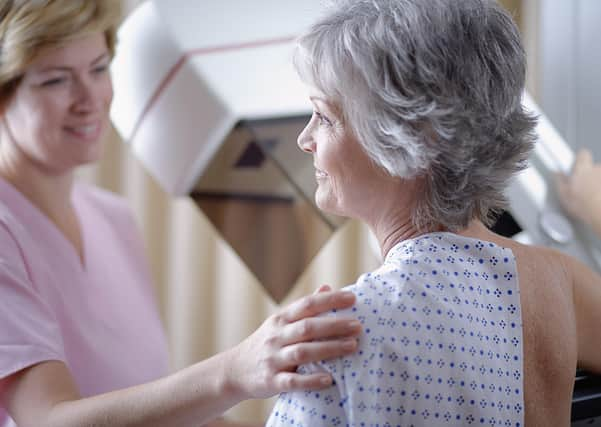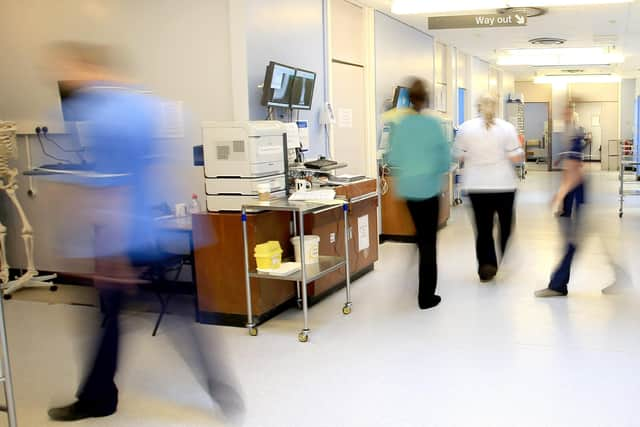Why women’s health fears will be addressed by review – Nadine Dorries


As a result, women have been under-represented in research. Despite living longer than men, women spend a greater proportion of their lives in ill health and disability, and there are growing geographic inequalities in women’s life expectancy.
That makes levelling up women’s health an imperative for us all, so we must meet our goal of extending healthy life expectancy by five years by 2035.
Advertisement
Hide AdAdvertisement
Hide AdThe call for evidence, running until May 30, seeks to examine women’s experiences of the whole health and care system, including mental health, disabilities and healthy ageing, as well as female-specific issues such as gynaecological conditions, pregnancy and post-natal support, and the menopause. The call for evidence is based around six core themes.


The first pillar is placing women’s voices at the centre of their health and care. We know that damaging taboos and stigmas remain around many areas of women’s health, which can prevent women from starting conversations about their health or seeking support for healthcare.
When women do speak about their health, all too often they are not listened to. As the Minister for Patient Safety, I regularly hear from and meet people who have been affected by this.
As independent reports and inquiries have found, it is often women whom the healthcare system fails to keep safe and fails to listen to, and this has to change.
Advertisement
Hide AdAdvertisement
Hide AdThe second pillar is improving the quality and accessibility of information and education. If we are to tackle taboos and ensure that women’s voices are heard, the provision of high-quality information and education is imperative.
To give a timely example, March is Endometriosis Awareness Month. Endometriosis is a common condition affecting one in 10 women of reproductive age, yet the average diagnosis time is seven to eight years.
It greatly saddens me to hear how so many women think, or worse, are told that the debilitating pain and symptoms that they are experiencing are normal or imagined and that they must live with it.
The third pillar is making sure that the health and care system understands and is responsive to women’s health and care needs across their life course.
Advertisement
Hide AdAdvertisement
Hide AdFor example, we know that women who have high blood pressure or pre-eclampsia during pregnancy are at greater risk of heart attack and stroke in future. We also know that women can find it difficult to access services that meet their specific needs, or that meet their needs in a convenient place or time, and that there are significant inequalities between different groups of women in terms of access to services. For example, women of black ethnicity are four times more likely than white women to die in pregnancy and childbirth.
The fourth pillar is maximising women’s health in the workplace. The pandemic has brought home just how important this is. Some 77 per cent of the NHS workforce and 82 per cent of the social care workforce are women, and throughout the pandemic women have been on the frontline, making sure that people receive the health support and care that they need.
There is some evidence that female-specific health conditions – such as heavy menstrual bleeding, endometriosis, pregnancy-related issues and the menopause – can affect women’s workforce participation, productivity and outcomes.
The fifth pillar is ensuring that research, evidence and data support improvements in health. We have a world-class research and development system in the UK, but women – particularly women from ethnic minorities, older women, women of childbearing age, those with disabilities, and LGBT women – have been under-represented in research. This has implications for the health support and care that women receive.
Advertisement
Hide AdAdvertisement
Hide AdOur sixth and final pillar is responding to the impacts of Covid-19 on women’s health. We must fully understand the impact of Covid-19 and what we can do to take that understanding forward.
This strategy marks a turning point for women. We are making women’s voices heard and putting them at the very centre of their own care, so that we can make sure that our nation’s health system truly works for the whole nation.
Please visit https://consultations.dhsc.gov.uk/talkwomenshealth and share your views.
Nadine Dorries is the Minister for Patient Safety, Suicide Prevention and Mental Health. She launched the women’s health strategy in Parliament – this is an edited version.
Advertisement
Hide AdAdvertisement
Hide AdSupport The Yorkshire Post and become a subscriber today. Your subscription will help us to continue to bring quality news to the people of Yorkshire. In return, you’ll see fewer ads on site, get free access to our app and receive exclusive members-only offers. Click here to subscribe.
Comment Guidelines
National World encourages reader discussion on our stories. User feedback, insights and back-and-forth exchanges add a rich layer of context to reporting. Please review our Community Guidelines before commenting.